Cramer Deserves Blame on House Farm Bill Failure, “Wait-and-See” Attitude on Trade War
Jacobs: “The lesson for politicians is, in North Dakota, you can’t escape farm policy”
(BISMARCK, ND) — Kevin Cramer’s strategy of tethering himself to the far-right flank of his party isn’t working out too well – especially when that ship sank the Farm Bill and still leaves the threat of a trade war looming over North Dakota soybean farmers during the height of their planting season – potentially costing them sales to Russia and Brazil.
Today, former Grand Forks Herald publisher and editor Mike Jacobs highlighted crucial points about how in a state that weights agriculture policy heavily in elections, Cramer’s failure to pass a Farm Bill, combined with his do-nothing approach on a potential trade war and sloppiness in the tax bill could spell trouble for him in November.
“Kevin Cramer bears responsibility for sinking the Farm Bill in the House not just for endorsing a hostage provision that killed the bill, but for lying to North Dakotans by working behind the scenes to eliminate the sugar program while publicly taking credit for the ultimate failure of that poison-pill policy,” said Scott McNeil, Executive Director of the North Dakota Dem-NPL. “North Dakotans have a proud farming legacy, and they won’t forget his Farm Bill failure. They also won’t forget his repeated praise of the president’s threatened trade war that still looms large and while the administration has garnered no concrete promises from China. For soybean farmers who – at the end of planting season – have already lost sales to Russia, their ability to plan for the future has been severely compromised. If there’s one thing Kevin Cramer has proven time and again, it’s that what he’s demonstrated on ag policy: He can’t lead, he can’t achieve results, and he can’t say no to anyone who might help his career.”
Read highlights from the Grand Forks Herald.
Grand Forks Herald: Jacobs: Farm bill could mean shift in election outlook
-
This year’s election campaign in North Dakota has shifted, perhaps significantly. The issue had seemed to be Donald Trump and which candidate supported him while keeping North Dakota issues in mind.
-
This changed last week when the U.S. House failed to pass a farm bill. To be clear, the vote had little to do with farm policy, but that doesn’t change the fact that farm policy is placed in peril by the vote. No farm bill means no funding for farm programs. No funding for farm programs means more risk for farmers. More risk for farmers means more volatility in the electorate.
-
This has big implications for North Dakota. Farm policy is a perennial issue in the state, and has often been a decisive one. That could happen this year.
-
The House action last week creates a two-edged opportunity for Heitkamp. First, Republican leadership in the House can plausibly be blamed for the vote, and Cramer can be linked to the leadership, and by extension he can be blamed, too.
-
He’s said he wants to be there representing North Dakota when important decisions are made, and he was there when the vote was taken. He voted in favor of the bill, but that doesn’t exempt him from culpability. Whatever his role, the bill didn’t pass.
-
The same thing can be said about the potential consequence of the Trump administration’s threatened tariffs on imports from China. China is a major buyer of soybeans, one of North Dakota’s leading farm products. The tariffs have been suspended while talks proceed, but the threat of a trade war hasn’t vanished entirely. Cramer and House candidate Kelly Armstrong have adopted a “wait-and-see” attitude, evidently hoping that the president’s posturing will achieve the reforms in Chinese policy toward U.S. patents, a key issue for American innovators.
-
Another farm-related issue presents a similar opportunity to question Cramer’s influence in Congress. Tax reform originated in the House, and was passed in both chambers. The bill included a provision harmful to sugar growers and processors. The oversight was caught and fixed. A sharp eye for North Dakota’s interests might have caught it in the original draft of the bill.
-
The current farm bill expires in September, and last week’s vote means that work on the new bill likely will move to the Senate. This gives Heitkamp an opportunity to demonstrate leadership on farm issues just ahead of the election.
-
Another Washington policy debate also has implications for North Dakota farmers, the renewable fuels standards. This requires refiners to include bio-fuels in their refinery output. An exemption has been proposed for small refineries, one of which is in North Dakota, at Mandan.
-
In some ways, farm policy is a legacy issue; many North Dakotans come from farms a generation or two back. That showed up dramatically in the 2016 primary election, when North Dakotans voted on a measure that would have allowed corporate ownership of up to 640 acres of land used for dairy and swine operations. Three-fourths of voters said no; opposition didn’t dip below 70 percent in a single county. The point is that city voters remain attached to farms and interested in farm policy; they perceived a threat to farming.
-
The lesson for politicians is, in North Dakota, you can’t escape farm policy.

